If you dread the idea of sipping something that tastes like a spoonful of cough syrup, Mullein tea might have you on edge (at least as people say.)
Your taste buds are not ready for a medicinal adventure, and that’s a genuine pain point.
But does it taste really that bad like a cough syrup or is it just a bogus analogy? I’ll help!
So, what does mullein tea taste like, actually?
Mullein tea has a taste that’s mild and slightly sweet, with a hint of earthiness. It’s not overpowering or bitter like some other herbal teas. Instead, you can expect a gentle, herbal flavor. Many describe it as having a subtle floral undertone, which can be quite pleasant.
Hold on, did you expect mullein tea to have this subtle herbal flavor? I bet you didn’t!
Wanna know where this earthy and subtly sweet flavor comes from in the mullein tea? And how does it pair well with some foods? I got your back!
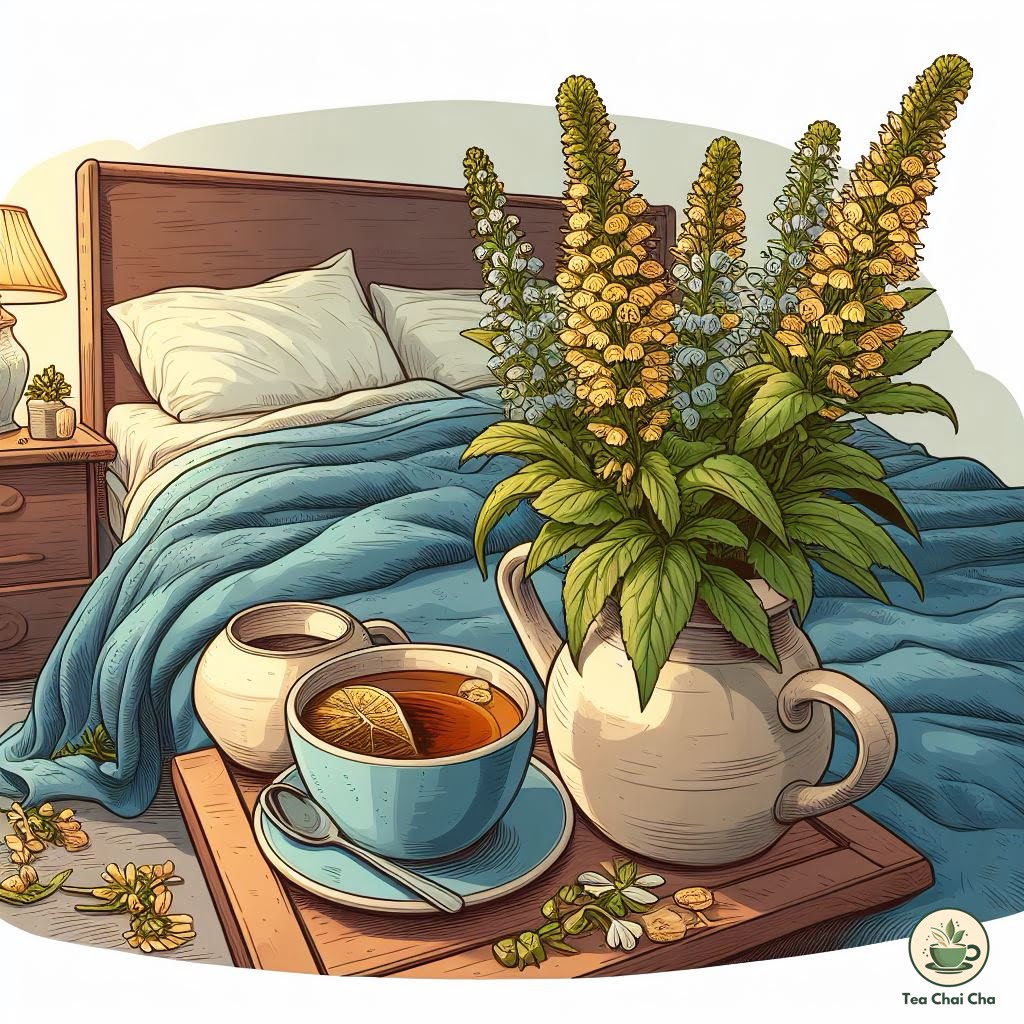
Does Mullein Tea Taste Good?
Mullein tea’s taste is subjective, and your opinion matters most.
Some people find it pleasing, with a mild, earthy, slightly sweet, or even floral taste.
But I assure you, it does not resemble cough syrup in flavor.
The way you prepare it and any added ingredients can influence the taste.
Oversteeping may lead to bitterness, but adding honey or lemon can make it tasty.
It all comes down to your personal preference – if you like herbal and earthy flavors, you might enjoy it; if not, you might not find it to your liking.
The best way to know is to give it a try (use my recipe to brew mullein tea) and see how it suits your taste.
Why Does Mullein Tea Taste So?
Mullein tea tastes the way it does because of the compounds within it.
When you sip mullein tea, you’ll notice it has a mild sweetness with a touch of earthy undertones.
This distinct flavor is primarily because of what’s in mullein leaves.
The natural sugars, like mucilage and fructose, give it that gentle sweetness.
At the same time, the bitterness and earthy notes come from saponins and other compounds like flavonoids and terpenoids.
These elements work together to create the unique flavor profile of mullein tea.
Keep in mind that the age of the mullein leaves and the way you prepare the tea can influence the taste.
Younger leaves tend to be milder, while older leaves might bring out a more robust earthy taste.
Steeping time matters too – a longer steeping time can intensify the flavor.

4 Different Tastes of Mullein Tea
Mullein tea has a subtle flavor profile but here are the four different tasting notes that I experienced.
1. Earthy Flavor
The earthy, natural flavor comes from compounds like terpenoids found in the plant.
And it’s also influenced by the soil and climate where the mullein grows.
The result is a unique earthy note that you might find appealing.
2. Herbal Notes
The herbaceous undertones in mullein tea are a delightful surprise.
They come from the leaves and flowers of the plant and are due to compounds like flavonoids and saponins.
These elements combine with the brewing process to create a wonderful herbal character.
3. Natural Sweetness
Mullein tea brings a mild, natural sweetness to your taste buds.
This gentle sweetness is thanks to glycosides and sugars naturally occurring in the plant.
It’s not as sweet as some other teas.
But this subtle sweetness adds balance and can make mullein tea a soothing choice for many people.
4. Subtle Bitterness
Occasionally, mullein tea may offer a subtle bitterness.
This bitterness comes from compounds like iridoids and alkaloids.
It’s not overwhelming, but it adds depth to the flavor.
If you like a more complex tea experience, you’ll appreciate this touch of bitterness.
You can also control the level of bitterness by adjusting your steeping time and temperature.
Effect of Tea Processing on Mullein Tea Flavor
Mullein tea is made from the leaves and flowers of the Verbascum thapsus plant, also known as mullein.
But what really matters is how it’s processed because that’s what gives it its unique flavor.
To start, you pick the leaves, flowers, or roots during the summer when they’re at their best.
After that, you dry them.
This drying part is crucial because it keeps all the good flavors intact.
You want those flavors to stay, right?
Once they’re dry, they’re often cut or crushed into smaller bits.
This step helps the flavorful stuff come out when you steep it in hot water.
And the size of those bits can make a difference in how your tea tastes.
It’s all about how fast those flavors come out when you’re brewing it.
You can make mullein tea with either fresh or dried leaves and flowers.
If you go for the fresh ones, your tea will have a milder, grassy flavor.
But if you use the dried ones, it’s going to be more concentrated and earthy.
How to Buy the Best Tasting Mullein Tea
You can harvest fresh leaves or flowers from your garden or your neighbor’s, or you can choose to dry them for later use.
If that’s not possible, you can always purchase it from the stores.
Here are some brief tips to help you make the right choice:
1. Select a Reputable Brand
When buying Mullein tea from a store, choose a reputable brand that is known for its quality.
This ensures you are getting a reliable product.
2. Check for Organic
Opt for organic Mullein tea if possible.
Organic teas are often free from harmful chemicals and pesticides, ensuring a healthier choice.
3. Look for Whole Leaves
If you’re buying loose tea, look for whole Mullein leaves or flowers.
They tend to have a more robust flavor and can provide a better tea experience.
4. Consider Tea Bags
If convenience is essential, opt for Mullein tea bags.
They are pre-measured and easy to use.
Make sure the bags are made from natural, non-bleached materials.
5. Read Reviews
Before making a purchase, take a moment to read online reviews or ask for recommendations from friends who have tried Mullein tea.
This can provide insights into the taste and quality.
6. Check for Freshness
Examine the packaging for the expiration date or the harvest date if available.
Fresher tea typically has a more robust flavor.
7. Buy in Small Quantities
If you’re new to Mullein tea, consider buying a small quantity to test the taste and see if it suits your preferences.
Or use fresh flowers or leaves, dry them, and brew them to check its taste before you buy mullein tea!
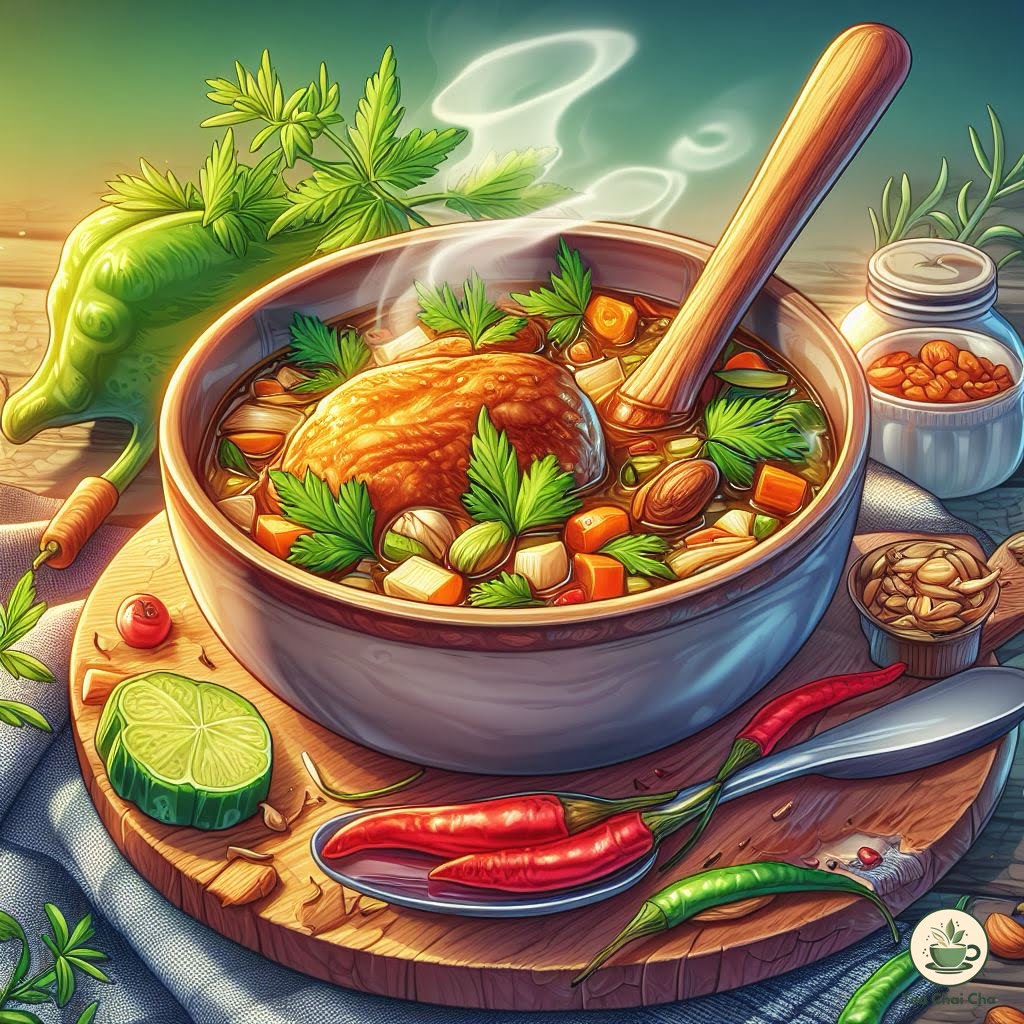
What Flavors Pair Well with Mullein Tea
Mullein tea, a winter favorite, does wonders for your respiratory health.
If you’re looking to make it a part of your routine or add a little twist, pair it with these complementary foods.
1. Soup and Stews
Mullein tea goes well with hearty soups and stews.
The warm and comforting nature of these dishes complements the soothing qualities of mullein tea.
Try pairing it with chicken soup, vegetable stew, or a bowl of chili for a satisfying meal.
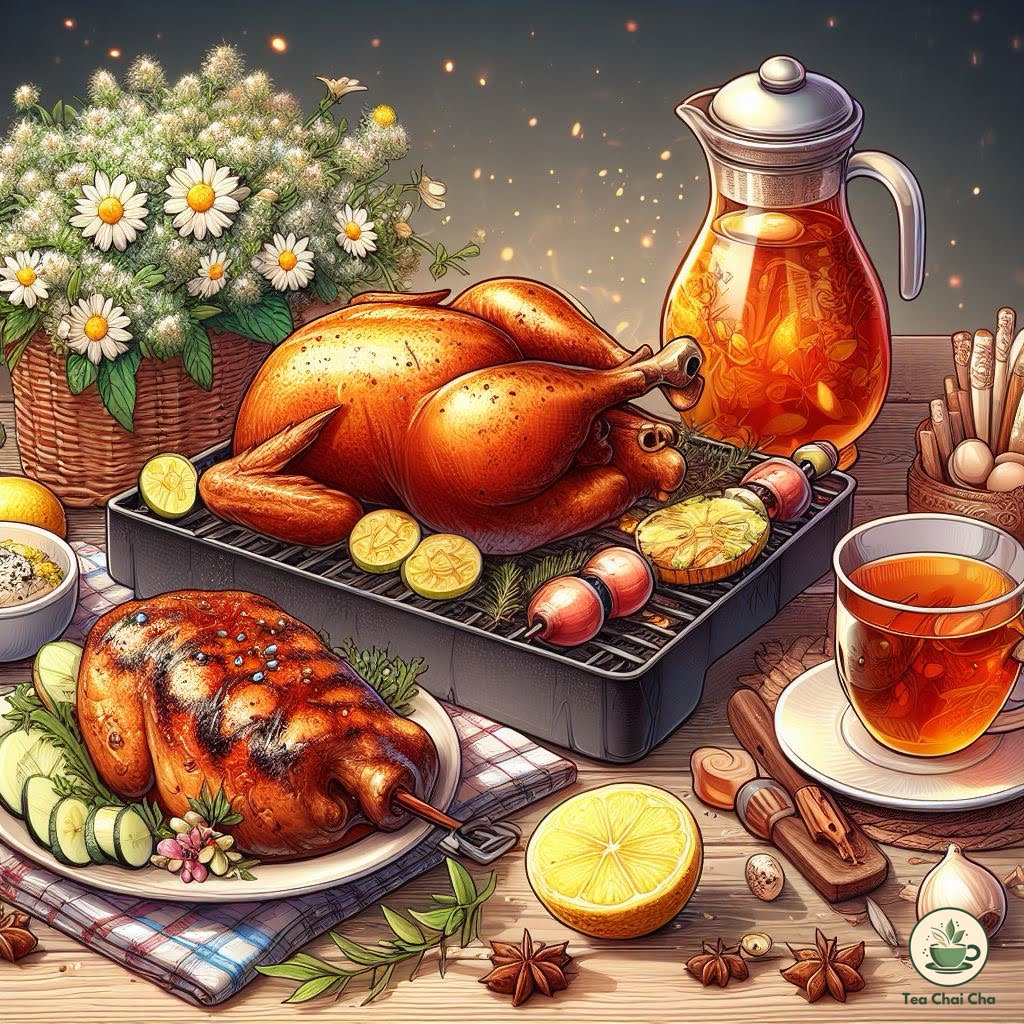
2. Grilled Meats
Grilled meats like chicken, pork, or lamb can be a great match for mullein tea.
The smoky and savory flavors of grilled dishes contrast with the mild herbal notes of the tea, creating a balanced combination.
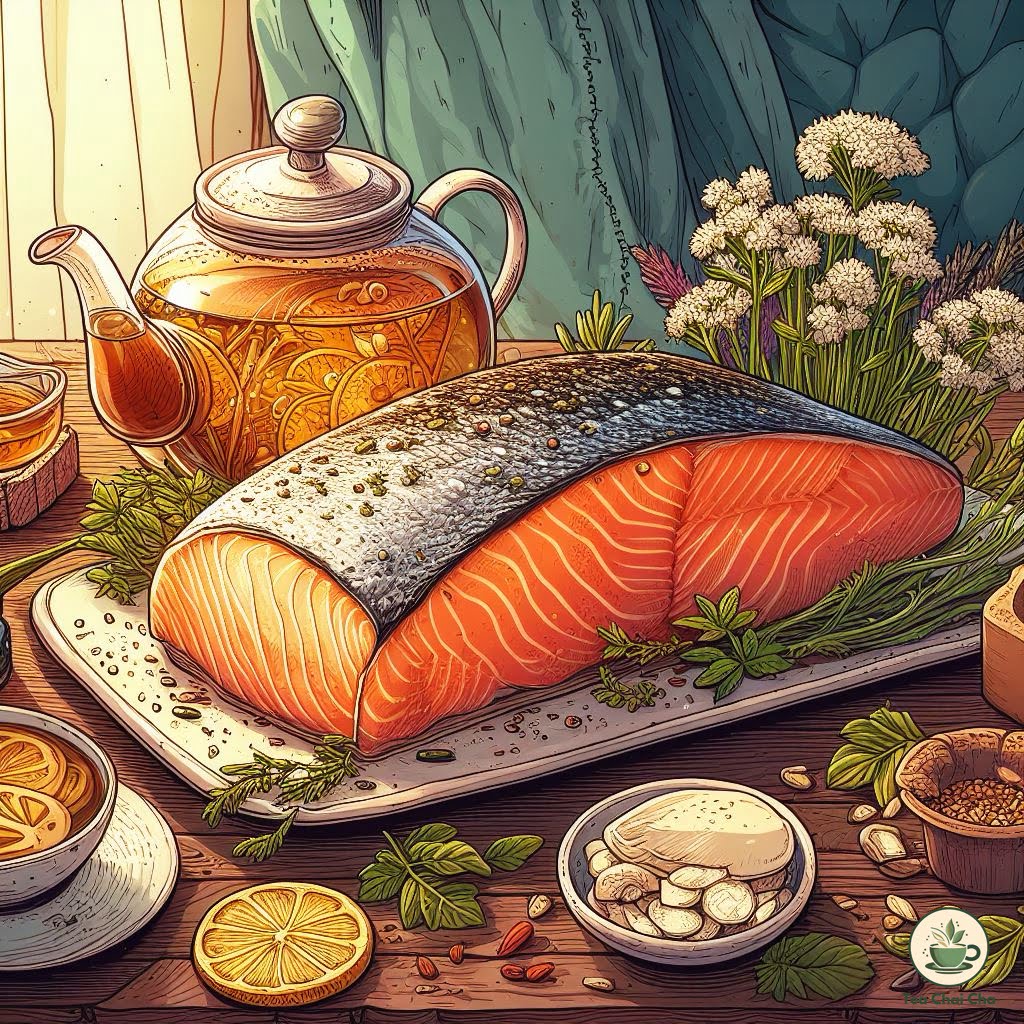
3. Baked Fish
If you prefer seafood, consider serving mullein tea with baked fish such as salmon or cod.
The light, flaky texture of fish pairs nicely with the herbal infusion, offering a fresh and healthy option.
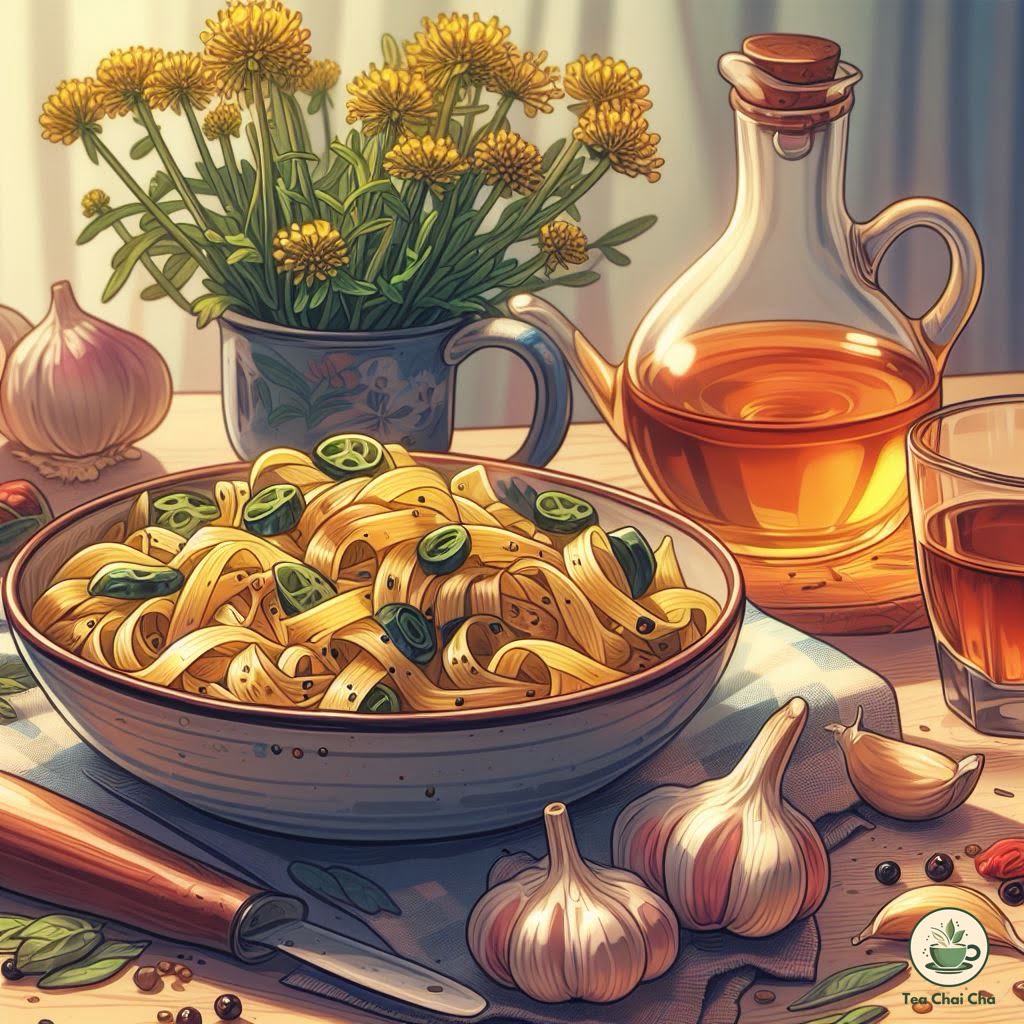
4. Pasta with Garlic and Olive Oil
A simple pasta dish with garlic and olive oil can be a great side for mullein tea.
The garlic and olive oil add robust flavors that harmonize with the tea’s earthy undertones.
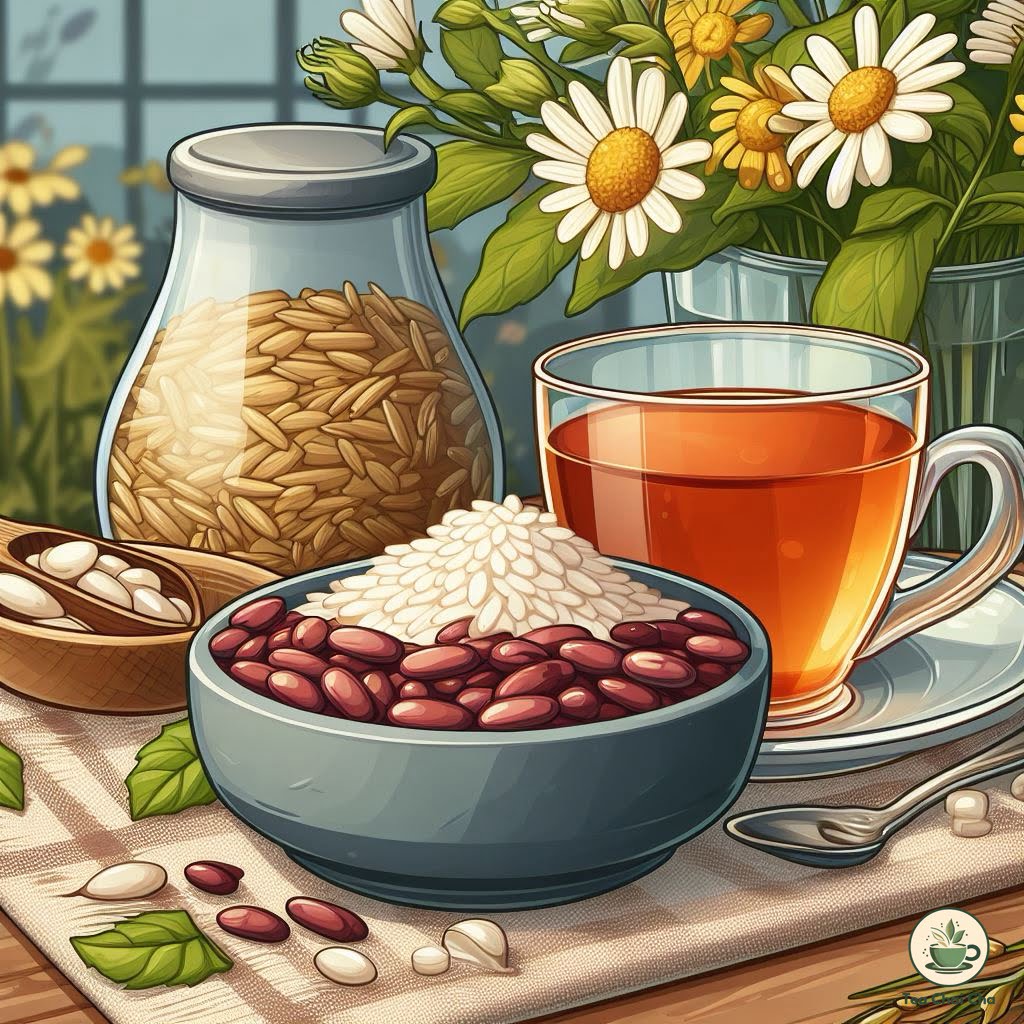
5. Rice and Beans
If you’re looking for a vegetarian option, consider rice and beans as a side dish for mullein tea.
The combination of rice and beans provides a satisfying, protein-rich accompaniment that complements the tea’s mild flavor.
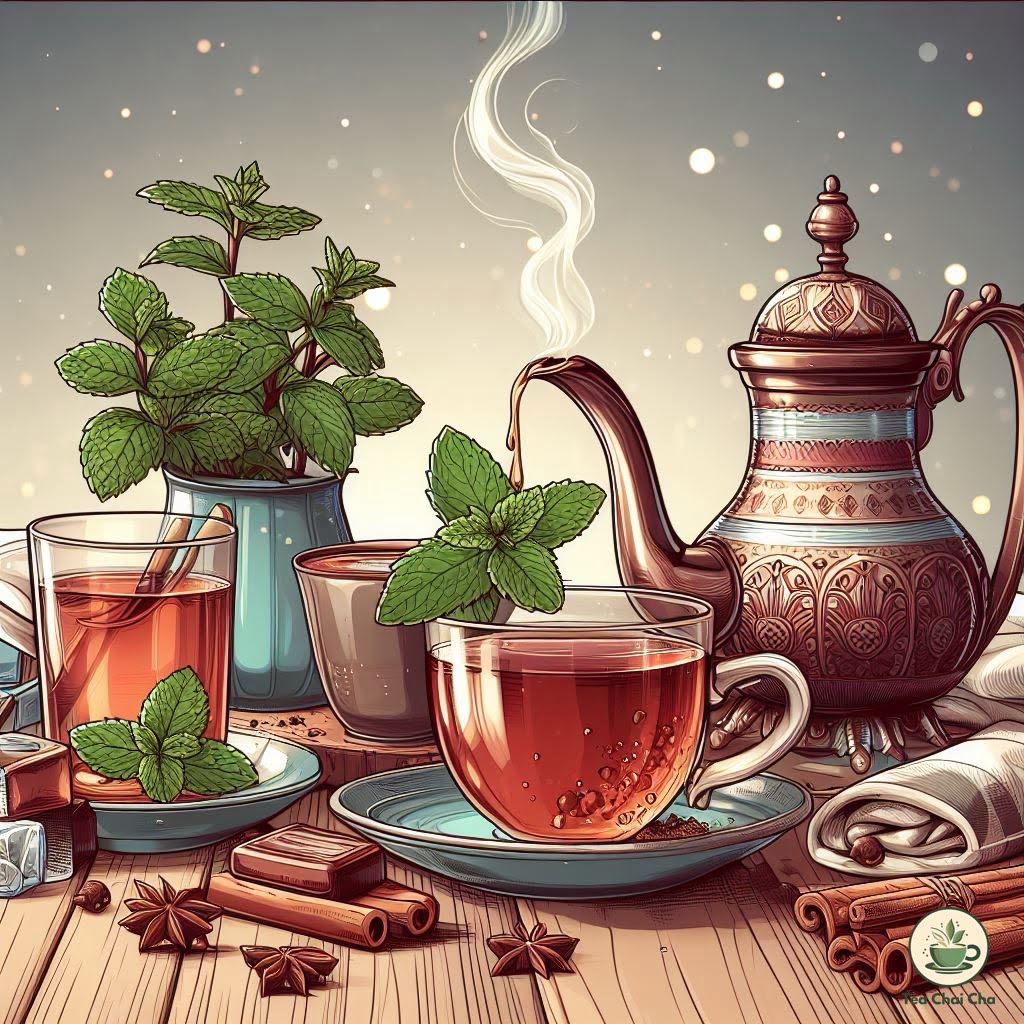
5 Teas That Taste like Mullein Tea
If you’re a fan of Mullein tea and want to discover teas with a similar taste profile, here are some options tailored to your preference:
1. Peppermint Tea
If you enjoy Mullein’s mild, slightly earthy taste, you’ll likely appreciate Peppermint tea.
It offers a refreshing flavor with a touch of herbal notes.
Plus, it’s known for its soothing qualities, making it a great alternative for you.
2. Chamomile Tea
Chamomile tea shares a gentle, soothing quality with Mullein.
Its delicate, floral flavor and hints of apple-like sweetness may align with your taste.
People often choose Chamomile for its calming effects, which could be just what you’re looking for.
3. Lemon Balm Tea
For those who appreciate the herbal aspect of Mullein, Lemon Balm tea is worth considering.
It combines a light, lemony taste with herbal undertones, offering a refreshing and soothing experience.
If you’re seeking stress relief, this could be a good match.
4. Lavender Tea
If you’re drawn to the herbal and slightly floral notes in Mullein tea, Lavender tea might pique your interest.
It has a unique and fragrant flavor, blending herbal and floral elements.
Many enjoy it for its calming and relaxation-inducing properties.
5. Eucalyptus Tea
If you prefer the distinct herbal and mentholated character of Mullein, Eucalyptus tea could be your cup of tea.
It boasts a refreshing taste with hints of mint and earthiness, and it’s often chosen for its potential respiratory benefits.

